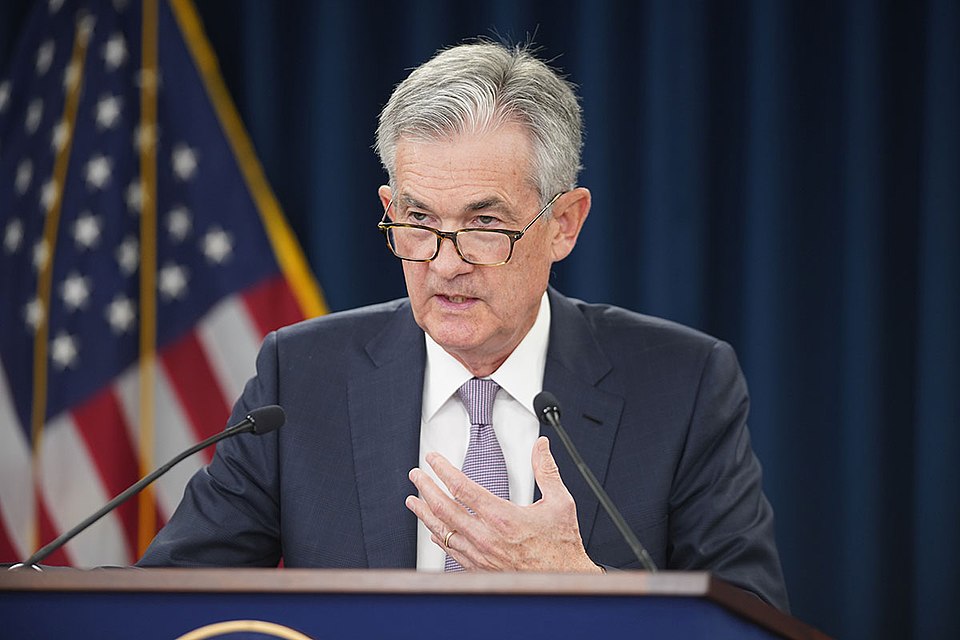
Former President Donald Trump once again directed sharp criticism at Federal Reserve Chairman Jerome Powell on Wednesday, questioning the central bank’s direction on interest rates and
jokingly suggesting that he might appoint himself as head of the Federal Reserve if re-elected.
Speaking to reporters outside the White House, Trump expressed frustration that Powell — the man he originally appointed during his presidency — was not moving quickly enough to cut interest rates amid lingering concerns about inflation and slowing economic growth.
“Powell’s too late,” Trump said, referring to the central bank’s pace in adjusting monetary policy. “We should have had those rate cuts already. He’s always late, always reacting instead of leading.”
Trump went a step further in his remarks, quipping about replacing Powell with himself as chairman of the Federal Reserve.
“Maybe I’ll just do it myself,” Trump said with a grin. “I’ve been right about the economy every time. Why not?”
Though the comment was made in jest, it reflects a long-standing tension between Trump and Powell, whom he has repeatedly criticized over the years, particularly during his time in office from 2017 to 2021. Trump frequently accused Powell and the Fed of undermining his economic agenda by raising interest rates or failing to cut them swiftly enough.
Powell’s Background
Jerome H. Powell has served as Chair of the Federal Reserve since February 2018, originally nominated by President Trump in November 2017 to succeed Janet Yellen. Powell, a lawyer by training and former investment banker, had previously served as a member of the Fed’s Board of Governors since 2012 after being nominated by President Barack Obama.
Born in Washington, D.C. in 1953, Powell holds a degree in politics from Princeton University and earned his law degree from Georgetown University. Before entering public service, Powell worked at several private investment firms, including Dillon, Read & Co. and the Carlyle Group. He is known for his moderate, consensus-building approach to monetary policy and for maintaining the Fed’s independence in the face of political pressure.
Despite being a Republican and a Trump appointee, Powell resisted calls to rapidly lower interest rates during Trump’s presidency, which led to repeated clashes between the two men.
A History of Tensions
Trump's latest comments revive a familiar storyline from his administration, during which he openly criticized Powell both on Twitter and in interviews. At one point, Trump reportedly considered firing Powell — a move that would have tested the limits of presidential authority over the central bank.
In 2019, Trump called the Fed “crazy” and “clueless,” and in one memorable moment likened Powell to an “enemy,” comparing him unfavorably to China’s President Xi Jinping. The Fed, under Powell, maintained its position as an independent body focused on long-term economic stability, often resisting political interference.
Looking Ahead
Trump's renewed attacks come as he campaigns for another term in the White House, positioning himself as a savior of the U.S. economy while blaming others for economic setbacks. The comments also arrive amid widespread speculation about the Fed’s next move. Market analysts remain divided over whether Powell and his colleagues will cut interest rates in the coming months, as inflation cools but global economic uncertainties persist.
While Trump's suggestion of personally leading the Fed is unlikely to be taken seriously, it highlights the continued politicization of monetary policy and the growing pressure on central banks around the world to align with populist agendas.
For Powell, the task remains unchanged: steer the U.S. economy through choppy waters, maintain credibility in financial markets, and, perhaps most challengingly, ignore the political noise. Photo by Federalreserve, Wikimedia commons.











































